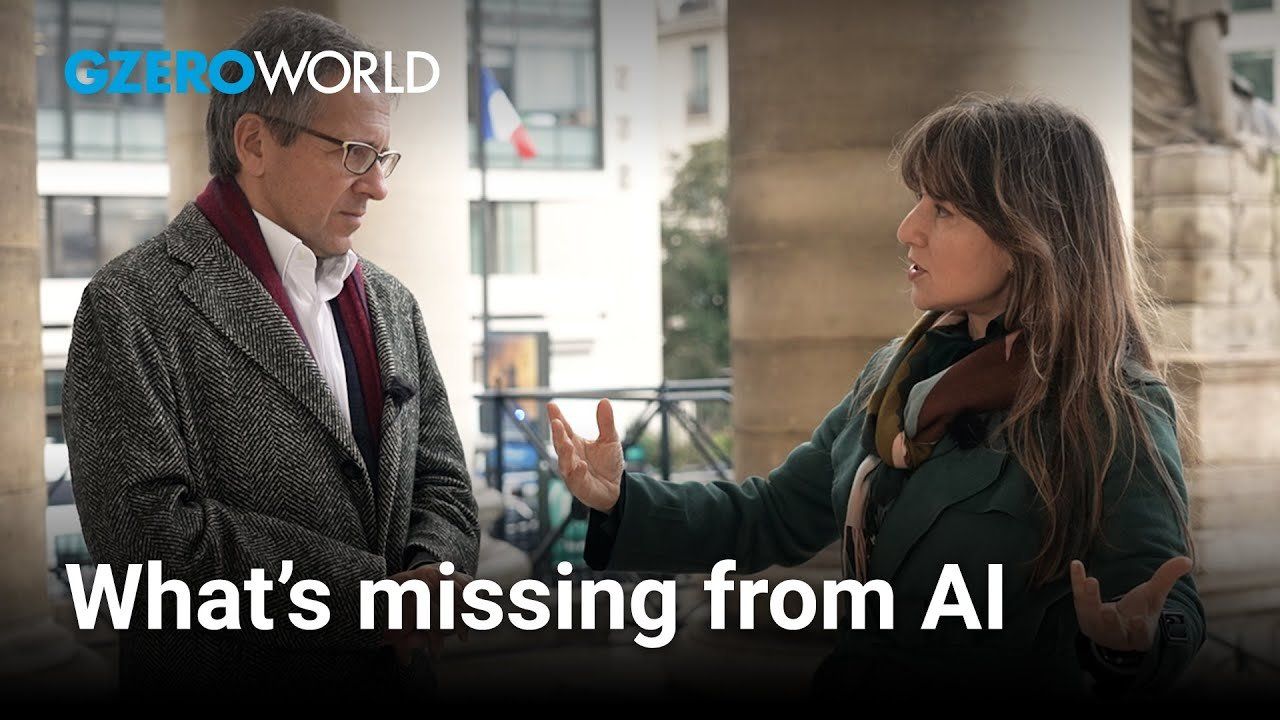
When deployed cheaply and at scale, artificial intelligence will be able to infer things about people, places, and entire nations, which humans alone never could. This is both good and potentially very, very bad.
If you were to think of some of the most overlooked stories of 2023, artificial intelligence would probably not make your list. OpenAI's ChatGPT has changed how we think about AI, and you've undoubtedly read plenty of quick takes about how AI will save or destroy the planet. But according to Princeton sociologist Zeynep Tufekci, there is a super important implication of AI that not enough people are talking about.
"Rather than looking at what happens between you and me if we use AI," Tufekci said to Ian on the sidelines of the Paris Peace Forum, "What I would like to see discussed is what happens if it's used by a billion people?" In a short but substantive interview for GZERO World, Tufekci breaks down just how important it is to think about the applications of AI "at scale" when its capabilities can be deployed cheaply. Tufekci cites the example of how AI could change hiring practices in ways we might not intend, like weeding out candidates with clinical depression or with a history of unionizing. AI at scale will demonstrate a remarkable ability to infer things that humans cannot, Tufekci explains.
Watch the GZERO World with Ian Bremmer episode: Overlooked stories in 2023
Catch GZERO World with Ian Bremmer every week at gzeromedia.com/gzeroworld or on US public television. Check local listings.
- Regulate AI: Sure, but how? ›
- Everybody wants to regulate AI ›
- AI regulation can’t address what people want ›
- EU AI regulation efforts hit a snag ›
- Accelerating Sustainability with AI: A Playbook ›
- Ian Explains: How will AI impact the workplace? - GZERO Media ›
- Why Assad’s sudden fall was surprising - GZERO Media ›